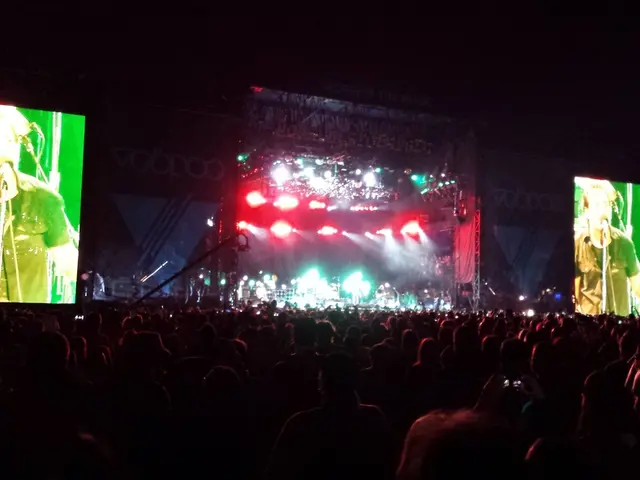Neuroscientists unveil brain's unexpected response to nostalgic tunes in groundbreaking research
Title: Uncovering the Power of Nostalgic Tunes: A Journey Through Time and Memory
Musical Time MachinesEver found yourself transported back in time by a simple song? music has this uncanny ability to evoke vivid memories and emotions, and now science is digging deeper into why that happens.
The Study Reveals AllA recently published study in Human Brain Mapping delves into the unique power of nostalgic music to engage brain regions associated with memory, self-reflection, and emotional processing.
It's More Than Just a Feeling
The research determined that when individuals listen to personally nostalgic songs, their brains respond with significantly higher activity compared to familiar or unfamiliar music. Notably, this effect was observed across both younger and older age groups, but older adults showed even stronger activation in key memory and emotion-related brain areas.
Nostalgia: A Personal Treasure Trove
The study debunks the notion that certain songs universally trigger nostalgia. Instead, each person has a distinct set of nostalgic songs that carry deep emotional and sentimental value. To confirm the brain's reaction was due to nostalgia and not just familiarity, researchers used a machine-learning tool to select control songs that were musically similar but did not evoke nostalgia. Unfamiliar songs were also introduced as a control measure.
How the Study Unfolded: Songs, Scans, and Emotions
The research involved 57 participants, comprising 29 younger adults (18 to 35 years old) and 28 older adults (60 and above). Each participant underwent functional magnetic resonance imaging (fMRI) while listening to their nostalgic songs, matched familiar control songs, and unfamiliar songs. The songs were 40-second clips, with participants keeping their eyes closed to focus solely on the music's emotional impact. After the listening session, participants rated each song's nostalgia level, emotional intensity, and positivity. They also completed memory-related tasks to further explore how music influences cognitive functions.
The Brain on Nostalgia: A Symphony of Memories and Emotions
The brain scans revealed that nostalgic songs activated a network of brain regions, including the medial prefrontal cortex, posterior cingulate cortex, hippocampus, insula, anterior cingulate cortex, ventral tegmental area, and orbitofrontal cortex. One intriguing finding was the increased functional connectivity between personal memory and emotional awareness regions.
Why Older Adults Experience Stronger Nostalgia?
Surprisingly, older adults exhibited even stronger brain responses to nostalgic music than younger adults. They also reported more positive emotions while listening to music overall. The increased activity was especially evident in regions related to sound processing, memory, and emotional meaning. One explanation is that as people age, they prioritize emotionally meaningful experiences over novelty.
Music for Memory: Aiding Alzheimer's Patients
Understanding the brain's response to nostalgic music could lead to innovative music-based therapies for individuals with Alzheimer's disease and other dementias. As these individuals often retain the ability to recognize and respond to music, using nostalgic music in therapy could help improve memory and quality of life.
Cultural Influences and Future Studies
While the study's findings are significant, the researchers acknowledge some limitations, such as the homogeneous cultural background of study participants. Future research should explore how nostalgia varies across different cultures, and the impact of full-length songs on nostalgia.
In conclusion, nostalgic music's power to evoke memories, emotions, and even aid Alzheimer's patients is more than mere sentimentality – your brain is actively engaging in a deeply emotional and personal experience. Whether it's a song from your childhood or a track that defined your teenage years, nostalgic music holds a powerful key to your past.
- The study in Human Brain Mapping revealed that mental health, especially self-reflection and emotional processing, is significantly engaged when individuals listen to personal nostalgic songs, rather than familiar or unfamiliar music.
- The research discovered that music, particularly nostalgic tunes, can aid in health and wellness, specifically for individuals with neurological disorders like Alzheimer's disease, as these patients might retain the ability to recognize and respond to music.
- As the study progresses, future research will explore the cultural influences on nostalgia, focusing on how the power of nostalgic music varies across different cultures and the impact of whole songs, not just clips, on triggering nostalgia.








